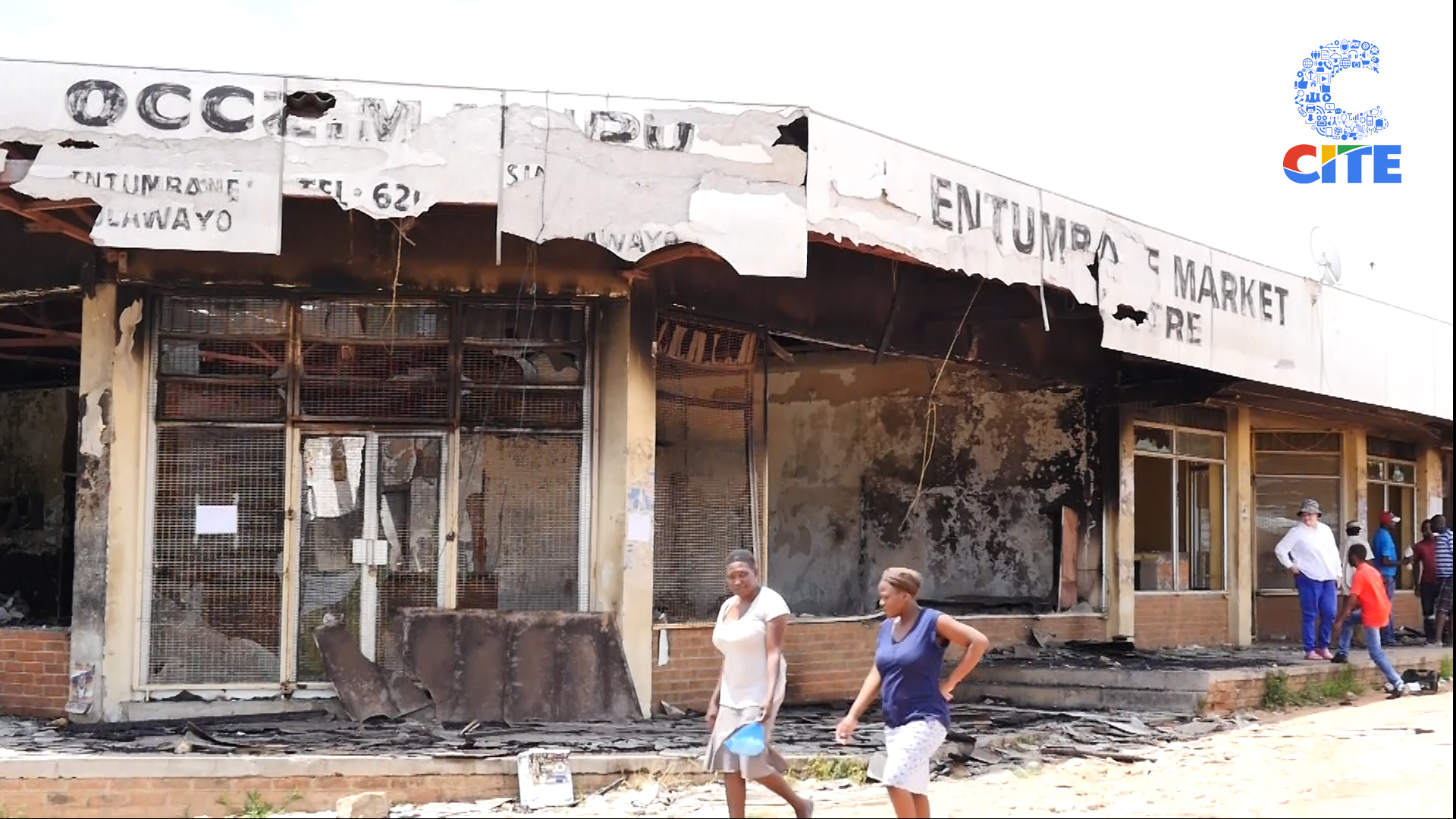Only 25 out of more than 200 Bulawayo companies that suffered losses during the shutdown protests in January have so far received a bailout from the government.
In February, the government said it would facilitate a $19. 5 million loan facility to help the local companies get back on their feet.
The loan facility was later increased to $30 million to assist affected businesses countrywide.
Responding to questions from CITE on an update of the loan facility, Industry and Commerce Minister Nqobizitha Mangaliso Ndlovu, said some businesses were now accessing the money but acknowledged the process had taken some bit of time.
“We needed to make sure that it is watertight and we don’t want a repeat of previous programmes where business benefit from such facilities but then fail to repay.
“These are taxpayers’ funds which we have to make sure they are utilised in a responsible manner. We believe we have a watertight system now and businesses have begun benefiting from this, I think some received money early this week (last week),” he noted.
The industry minister said it was still too early to give numbers of how many have benefited so far but 25 companies had gone through full approval.
“We have received close to 188 applications for various relief needs. We have restocking needs, re-equipment of machinery and reconstruction of the businesses structures that were burnt down. So we will be assisting in all those three requests,” he said.
Ndlovu hoped that in the next two weeks, companies would have made use of the funds, noting the facility could only assist businesses to meet their remaining capacity.
“The companies do not have to necessarily exhaust the fund that they are allocated, they only have to stock up to 200 percent if possible.
“We gave the companies two weeks to access this facility. It’s a short window because these people suffered losses in one day so they must have the capacity to stock up in one day.
“Those who had begun stocking using their own means well… (We hope they are doing well). Our intervention is to make sure that companies are assisted to restock fully,” he said
Last week, the Industry Minister led Finance and Economic Development Minister, Prof Mthuli Ncube, Small to Medium Enterprises Minister, Dr Sithembiso Nyoni and Bulawayo resident minister, Judith Ncube to local wholesalers, to assess if teething problems were sorted.
“We were advised first that there was some bit of hesitation from wholesalers to provide stock to the retailers before payment is reflecting, something like that. So we had to meet the wholesalers and we addressed that bottleneck and we were now advised that they are accessing their stock quite smoothly,” Ndlovu said.
According to reports some of the companies that received approval for loan grants are:
Value Supermarket owned by Newton Masike $49 827.98
Mulungu General Dealer owned by Kholeka Sibanda – $25 000
Forestvale Supermarket owned by Promise Khumalo – $21 050
Riteserve Enterprises owned by Walter Gwenure – $45 551
Katso Sports Bar owned by Lameck Katso- $5 787
Kuvukiland Sports Bar owned by Mariate Chironga – $2 107
Empire Beef Company owned by Prince Chuma – $6 469
Faith Butchery owned by Richard Chair – $9 100
Samaz Butchery owned by Tafara Madzikatire – $9 813
Trust care pharmacy owned by Washington Chigumire – $35 817
Nkulumane Service Station owned by Paulina Ndlovu – $ 6000
Thubelihle Supermarket owned by Daniel Nkoma – $18 242
Kwadzuruni Supermarket owned by Ndadzoka Dzuruni – $9 807.65
Greenfield Supermarket owned by Innocent Kamtando – $12 000
Blues Relief Investments owned by Petros Mdlongwa – $7 869. 07
Inathi Investments owned by Nqobizitha Dube- $4 000
Musarurwa Trading Stores owned by Shingirai Musarurwa – $46 600. 88
Reconciliation Trading owned by Japhet Sibanda – $42 612. 34
TN Supermarket owned by Thomas Ndlovu – $4721.40
Izandlazonke Supermarket owned by Nkululeko Mkandla – $14 150
Ashes Supermarket and Butchery owned by Thokozile Dube and Nigel Paulo – $47 000
The beneficiaries will repay the loans within three to six months, attracting a concessionary interest rate of four percent per annum.
This would come with a two month grace period before repaying; meaning in essence, there was a five to eight months repayment period.
Companies who lost equipment would be charged an interest rate of three percent per annum and have 12 to 24 months to repay.
Those companies who lost their buildings during the protests would access funding at a concessionary rate of two percent per annum and comes up with a 10 to 15 repayment period.

